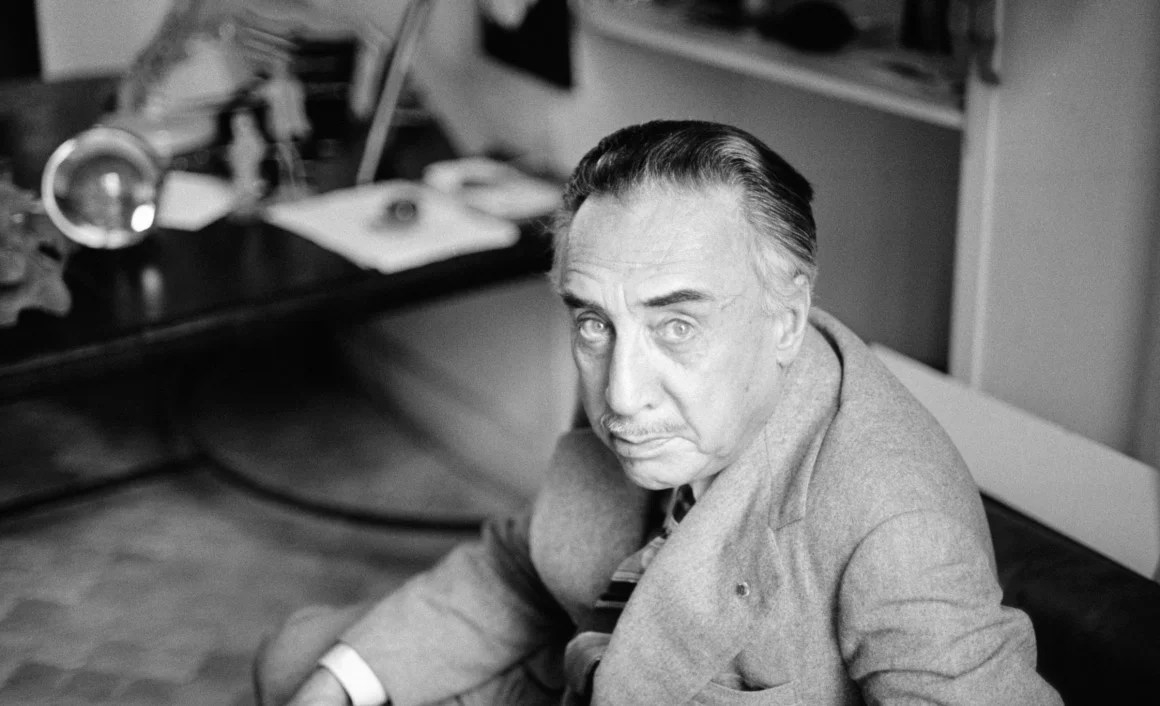
Romain Gary/Getty Images
On 8 May 2024, we celebrate the 110th birthday of Romain Gary, a remarkable French writer with an extraordinary life story.
The idea that a person is the master of their destiny often shatters when they are confronted with reality. Countless such ‘masters’ spend the time allotted to them, between the two dates of their lives, not just failing to rule over their destiny but not even serving it. They merely flop onto their backs, letting fate and circumstance take them wherever they may. One must consider a few things here. First, this is a convenient way to live. Second, it provides plenty of scope for complaint—others, you see, were much luckier; after all, they were born more beautiful, stronger, smarter, their parents were wealthier, they were more privileged, etc., etc. Yet, sometimes it's inspiring, and even useful, to think of those who, without any privilege, were able to transform their lives into a fairy tale—beautiful, occasionally terrifying, sometimes sad, at times absurd, but always remarkable.
Romain Gary is one of the most influential French writers of the twentieth century. He is counted among those authors whose creativity shaped the language and ethos of his era. But the greatest masterpiece he created was undoubtedly his own life.
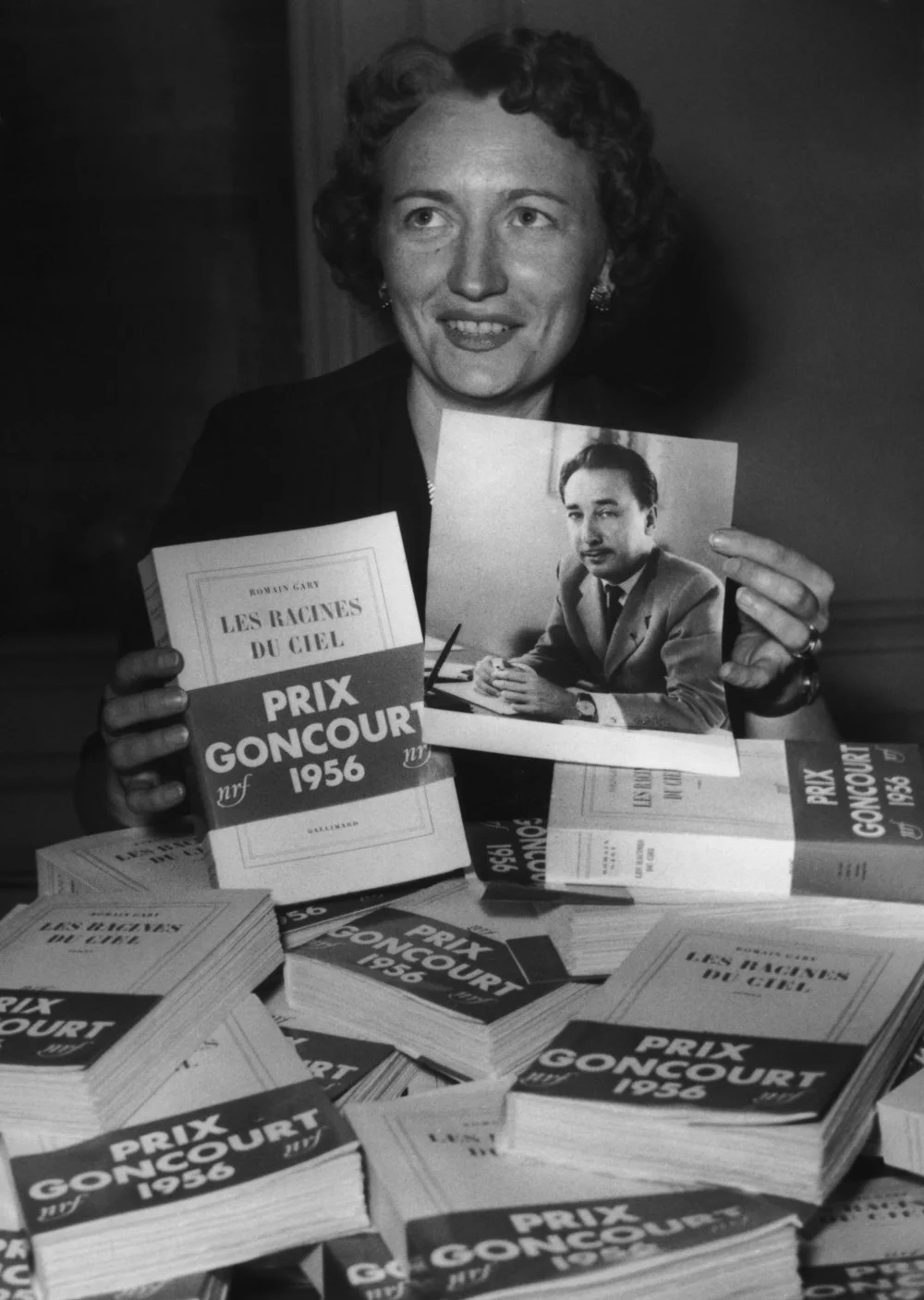
Copies of the book 'Les Racines du Ciel' ('The Roots of Heaven'), winner of the year's coveted Prix Goncourt, by French novelist, screenwriter, film director and diplomat Romain Gary, 3rd December 1956/Getty Images
Child of War
Roman Leybovich Kacew was born in Vilnius, Lithuania, at the beginning of the First World War. His father was almost immediately drafted into the army, and his mother, Mina Owczyńska, likely moved with her relatives to Moscow, where they endured the revolution, famine, and destruction. The hungry years of his earliest childhood left him afflicted with rickets, the effects of which gave him a fragile physique and a generally frail appearance for the rest of his life.
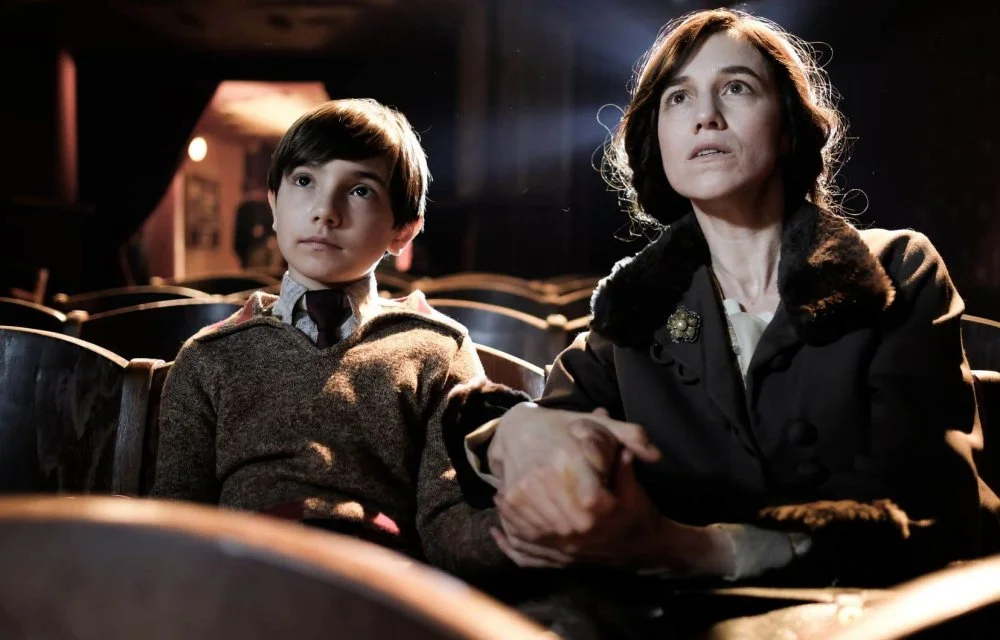
A shot from the biographical film about Romain Gary "The Promise at Dawn" (2017)/Charlotte Gainsbourg and Pawel Puchalski//Pathé Distribution
In 1921, his mother managed to return to Vilnius with the young Roman and attempted to reconcile with her husband, a venture that ended in separation. We know very little about Gary's father; his portrayal in the writer's partially autobiographical works is far removed from reality. For instance, Romain claimed that his father was Tatar and was named Leon Kasev. However, surviving documents confirm that his father was actually a Jewish man named Arieh-Leib Kacew. Romain occasionally insinuated that he might not even be Kacew's biological son, suggesting his real father could be a mysterious figure, perhaps a famous actor or someone of royal descent. Kacew was only briefly married to Mina and played a fleeting role in her life before disappearing, never having met the boy who ended up bearing his surname.
But according to the investigative biographer Myriam Anissimov, the author of Romain Gary: The Chameleon, while he was in Vilnius, Roman either lived or at least frequently communicated with his father until the age of twelve. Even after his father left the family for a new wife, he continued to support Mina and their son. According to documents submitted by Mina to the French consulate in 1928, Romain’s father was still paying alimony.
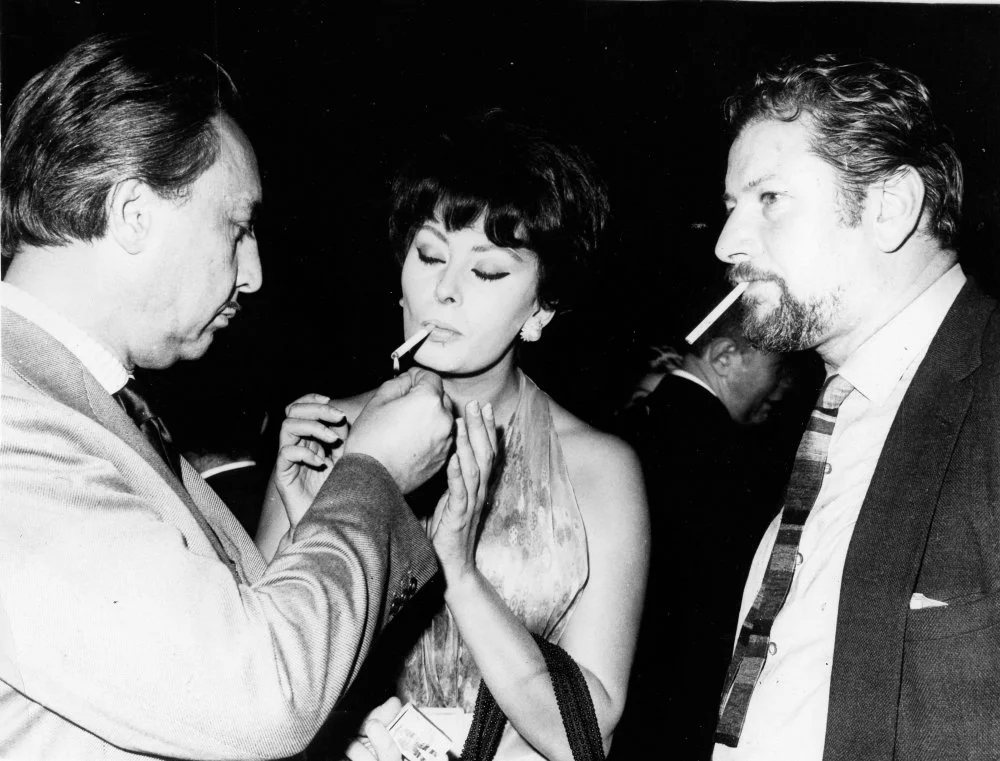
Italian Actress SOPHIA LOREN Receives A Light From ROMAIN GARY, Watched By PETER USTINOV At A Cocktail Party At The Boulonge Studios/KEYSTONE Pictures USA/Alamy
Perhaps Mina, hurt by her husband's betrayal, told her son fanciful stories about his ‘real’ father and depicted her former husband in an exaggeratedly negative manner—and this would have been very characteristic of Mina. Alternatively, it is also possible that the boy indeed witnessed scenes that instilled a deep animosity toward his parent. For instance, Romain Gary had a lifelong aversion to alcohol and could not stand drunkards—a common sentiment among children who suffer at the hands of alcoholic parents.
It is noteworthy that all of Romain Gary's Polish-Lithuanian relatives, including his father, would later perish in concentration camps. Regardless of how the writer felt about these relatives, he was fully aware of the horror that occurred and repeatedly addressed this tragedy in his works.
Maternal Prophecy
By the end of the 1920s, mother and son found themselves first in Warsaw and then in Nice with minimal funds, connections, and almost no documents. Alone in France with her teenage son, Mina did everything in her power to secure his future. She had had Roman at the relatively late age of thirty-five, and by the time she was in Nice, she was nearly fifty and battling diabetes. Nonetheless, she was determined to conquer the city with the energy of a young woman. Mina made hats, crafted handbags, and, posing as an aristocratic Russian emigrant, wandered through homes selling dubious jewelry that she presented as ‘family heirlooms’. In her youth, Mina had tried acting and apparently possessed not just talent but also a high degree of expressiveness, a keen sense of timing, and remarkable emotional intensity.
She adored her son and was willing to make any sacrifice not just for his well-being but for his fame, greatness, and global success.
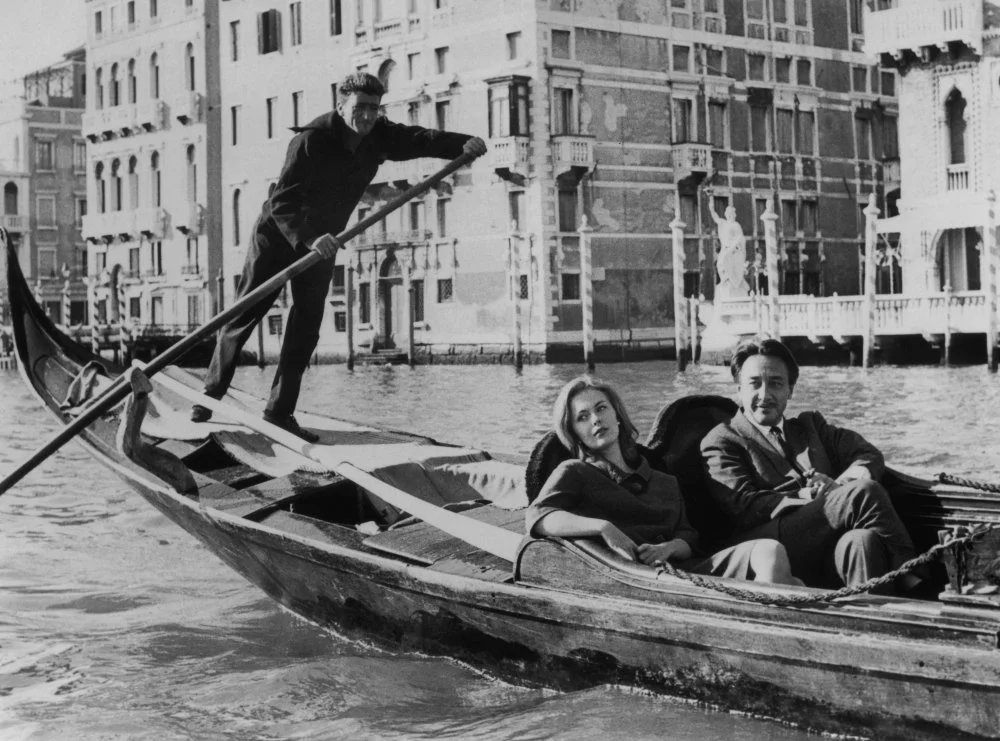
French novelist, screenwriter, film director and diplomat Romain Gary (1914 - 1980) holidays in Venice with his fiancee, American actress Jean Seberg (1938 - 1979) 27th October 1961/Getty Images
Her confidence in her son's genius sometimes even influenced those around them. Unable to withstand her force, fury, or pleas, Mina Owczyńska managed to get Roman accepted into the best schools. He was instructed in music, dance, fencing, horseback riding, and tennis for free, just to avoid the dramatic scenes for which this diminutive Russian woman was extremely notorious.
Although the boy showed no real talent for any of the activities he was being taught, it did not deter his mother. She believed her brilliant son was destined for a dazzling future.
Ringing and knocking on every door, she asked the neighbors to come out onto the stair landing. After exchanging mutual insults—where my mother always came out on top—she clung to me and, turning to the gathered crowd, proclaimed loudly and proudly—her voice still rings in my ears—: ‘Dirty bourgeois vermin! You have no idea who you are dealing with! My son will be a French envoy, a Chevalier of the Legion of Honor, and a great dramatic actor like Ibsen or Gabriele D'Annunzio! He will …’ She paused, searching for the most accurate description of the highest success in life, hoping to utterly astound them: ‘He will dress like a Londoner!’
—from Promise at Dawn by Romain Gary
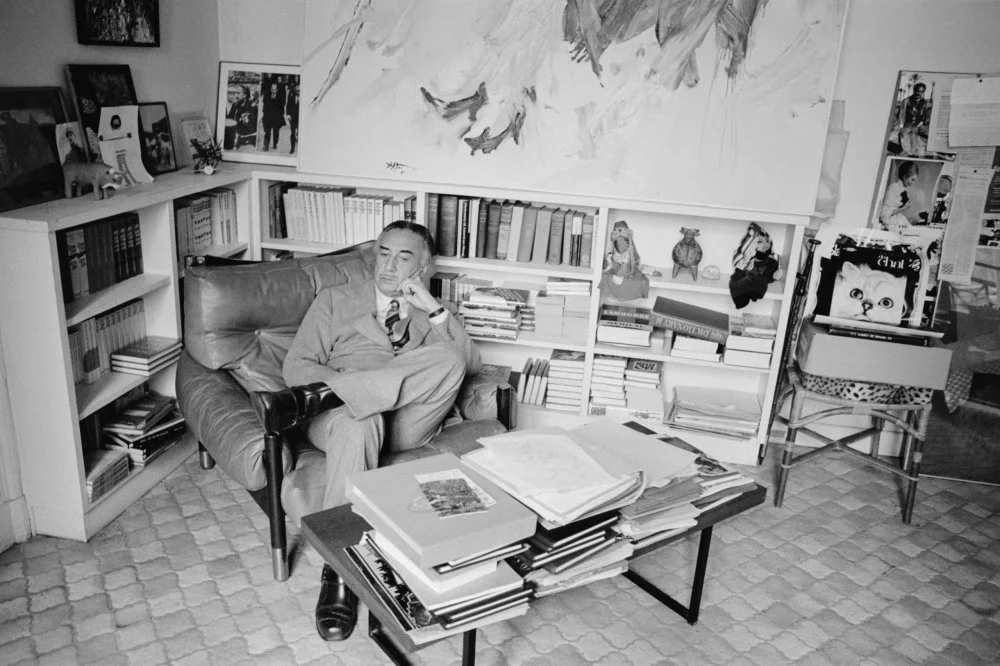
Lithuanian-born French writer and diplomat Romain Gary at home/Sophie Bassouls/Getty Images
Roman could not resist this frenzied energy either. After unsuccessful attempts in the theater, science, music, and painting—(the young Roman had shown some talent at drawing, but his mother abruptly decided that being an artist was too risky. Too many great painters had already died in poverty and become famous only posthumously, which was unacceptable to her, and so she imposed a veto on painting)—it was decided he would become a writer as well as a French diplomat and statesman.
Roman did not have French citizenship, and his command of French was weak (he spoke with a strong Russian accent until the end of his days), but he had no alternative—his mother’s will was unstoppable. Moreover, the boy had already seen the lengths his mother would go to for him.
For thirteen years alone, without a husband or lover, she fought desperately to earn a living: for butter, shoes, clothes, rent, and beefsteak for lunch—the very steak that was ceremoniously served to me daily as a symbol of her triumph over fate. Upon returning from the lycée, a steak awaited me: while I ate, my mother stood by and watched me peacefully, like a dog nursing her puppies. She never touched it herself, claiming that she only liked vegetables and that meat and fats were strictly off-limits for her. One day, after leaving the table, I went to the kitchen for a glass of water. There sat my mother on a stool, holding the pan from my steak. She was diligently wiping the greasy bottom with pieces of bread, which she then eagerly swallowed. That was how I discovered the true reason behind her vegetarianism.
Frozen in place, I watched in horror as she clumsily hid the pan under a napkin, giving me a fearful and guilty smile, then I burst into tears and ran away.
—from Promise at Dawn by Romain Gary
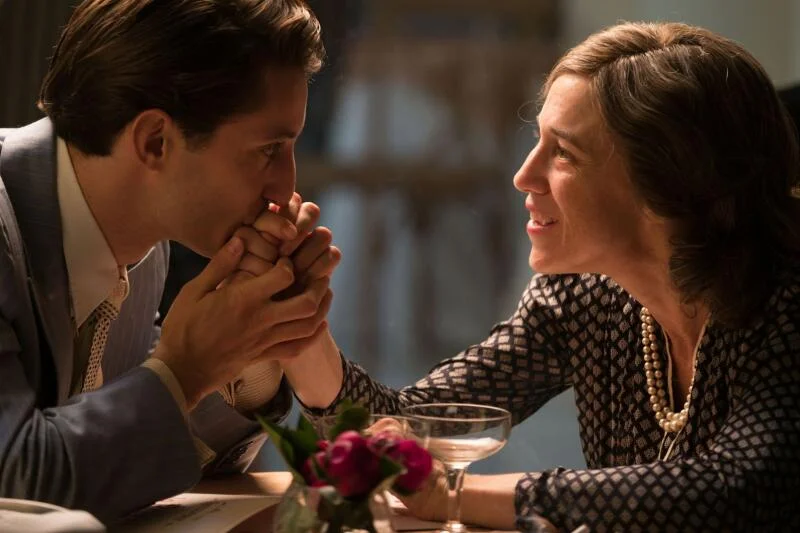
A shot from the movie "Farewell at Dawn" (2017)/Charlotte Gainsbourg and Pierre Niney/Pathé Distribution
The young Roman soon began to read—not naturally or voraciously, as children born with a love for words typically do, but deliberately. He was striving not only to learn the language but also to understand the magical mechanism that creates worlds from a mere scattering of letters. From the age of fifteen, he began writing and even attempted to get published, sending essays and stories to various publications. A couple of stories, ‘The Storm’ and ‘The Hen’, which were rather weak, were even published. He wrote a novel, The Wine of the Dead, but publishers rejected this immature work, and it was only published after his death. Since he also needed to become a diplomat, he studied law at university.
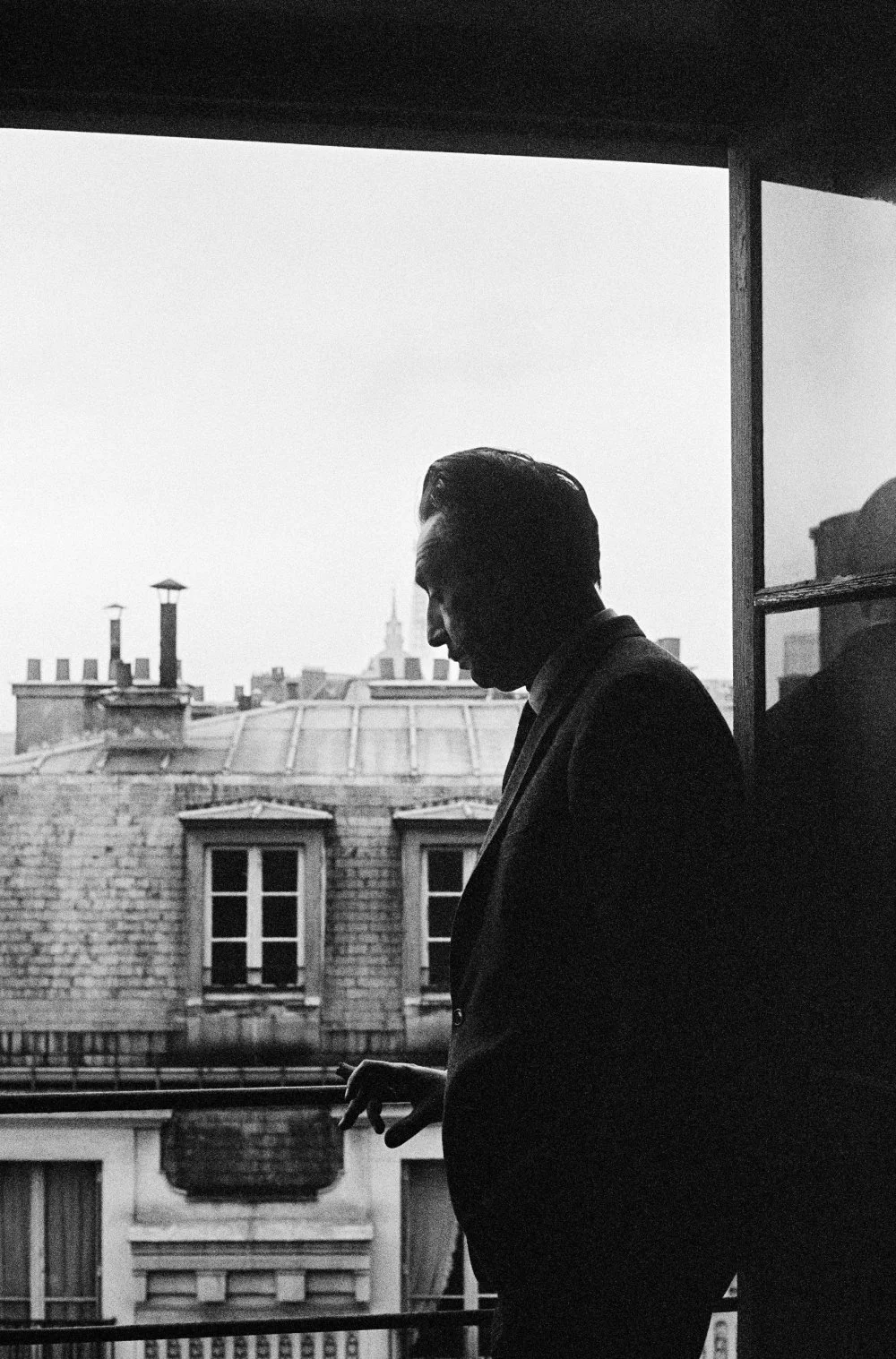
French novelist, diplomat, film director, and World War II aviator Romain Gary at a cafe in 1961/Getty Images
A Pilot and Hero
In the fall of 1936, Roman was conscripted into the military and enrolled in flight school. There, he trained to be a reconnaissance pilot. To ease his mother's worries, he sent her reassuring letters suggesting that a reconnaissance pilot merely watches other planes from the ground rather than flying them, though it's uncertain if Mina found these explanations comforting or believable. He excelled in his training, yet despite his performance, he and another cadet were the only ones among 290 graduates who did not receive officer ranks due to their foreign origins.
Immediately after graduating from flight school in the spring of 1939, he was assigned to a unit as France began intense preparations for war.

Promise at Dawn/Charlotte Gainsbourg et Pierre Niney/Pathé Distribution
In 1939, when the Second World War began, Roman became a military pilot. France surrendered to the Germans after eight months, but this did not stop Romain—he managed to flee to Britain and joined the Free French Forces formed by General Charles de Gaulle as a pilot. Shortly before leaving, he had a chance to meet with his mother, and Mina bestowed her blessings on her son for his heroic endeavors.
What follows, however, is a detective story filled with twists and turns. In several autobiographical works, Roman recounts how his mother, already fatally ill with stomach cancer, hid her diagnosis from him. For the next four years, he received letters from her every week, sent indirectly through third countries and intermediaries. It was only after the war that he learned that Mina had died shortly after his escape. However, in her final weeks, she had managed to write several hundred letters to her son and entrusted them to friends to be sent one by one to ‘Romushka’ so that he could ‘fight with peace of mind’.
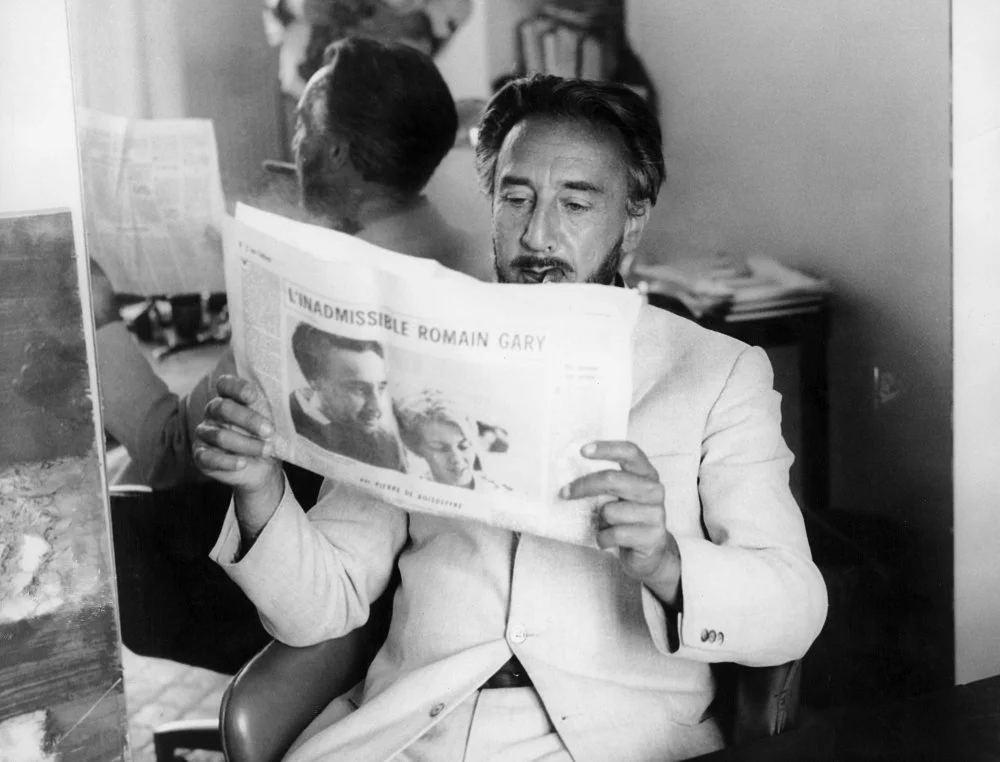
Romain Gary reads a newspaper/Getty Images
While this incredible story has touched the hearts of millions of readers, alas, it likely existed only in Roman’s imagination. According to Suzanne Ajid, a relative of Mina’s who lived with her, it was Roman who had written 100 undated letters in case he was killed and instructed that they be given to his mother.
During the war years, Roman fought in Africa and later joined Groupe de bombardement Lorraine (No. 342 Squadron RAF), stationed in England. On the Vichyi
By the end of the war, Gary had risen to the rank of captain, had been decorated with numerous honors, and was a commander of the Legion of Honor, the highest distinction awarded by the French state. It was during this time that he officially changed his name from ‘Roman Kacew’ to ‘Romain Gary’.
The Mystifier
In 1945, the publication of Education Européenne was received ecstatically by critics and the public alike. This is no surprise really. Gary's prose is an extraordinary blend of poetic language with extreme dramatic plot twists—it's a tragedy adorned as a soubrette, laughter through tears, pathos strewn in the mud.
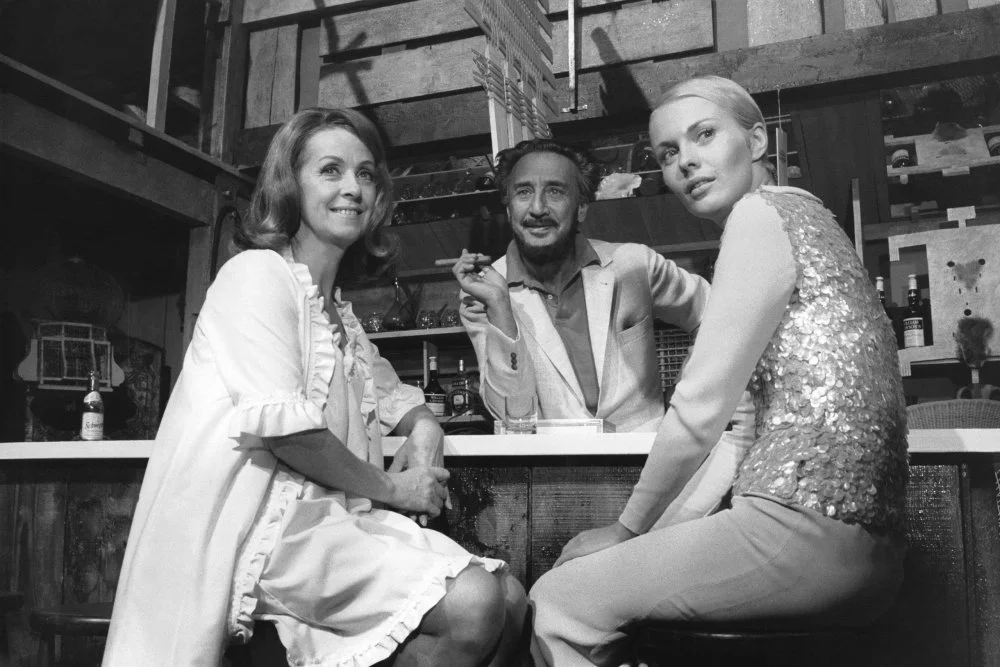
Romain Gary et Jean Seberg. Circa 1970/Getty Images
His incredible ability to find humor in horror and greatness in the pitiful meant that a story about concentration camps, death, and torture might end with a humorous anecdote that did not trivialize the narrative but underscored the horror of what was being described.
Initially, it was only France that fell in love with Gary, but soon the whole world followed suit. He was extraordinarily prolific, writing a novel every year or two, and everything he wrote was celebrated. Meanwhile, writing was not Gary's primary profession. Just as his mother had hoped, he became a diplomat. In 1956, he took up the position of Consul General of France in Los Angeles. That same year, he received the Prix Goncourt for his novel The Roots of Heaven.
Gary also began writing novels under different pseudonyms, creating a complex system of mysteries. He adopted other personas, the most famous of which became Émile Ajar, whose novel The Life Before Us, about an Arab orphan named Momo, also won the Prix Goncourt. This prize is traditionally never awarded to the same writer twice, and Gary became the only person to win two Goncourt prizes with his pseudonymous creations.
It was only after Gary's death that Émile Ajar’s true identity was revealed. He had explicitly written the essay ‘The Life and Death of Émile Ajar’, asking friends to publish the confession posthumously:
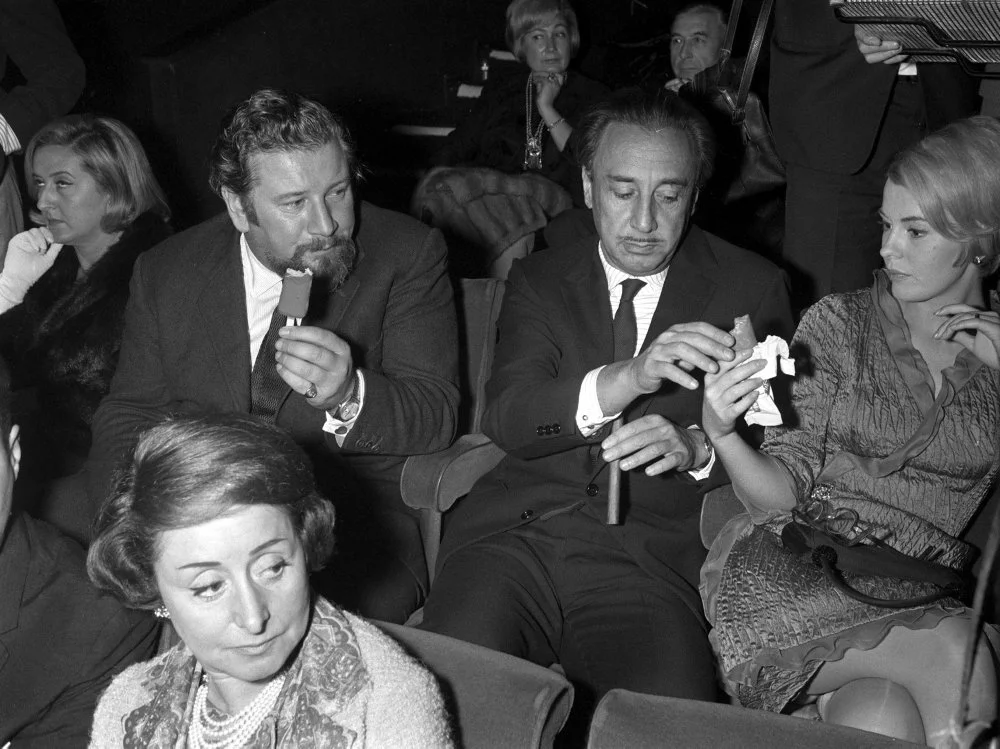
The First Time Of "Un Monsieur De Compagnie" In Paris, France On November 04, 1964/Getty Images
Now, I must attempt to explain seriously. I'm tired of being only myself. I'm tired of the image of Romain Gary that was imposed on me thirty years ago when Education Européenne brought unexpected fame to a young pilot and Sartre wrote in Le Temps Moderne: ‘It will be several years before we can definitively recognize Education Européenne as the best novel about the Resistance …’ Thirty years! They “crafted my persona”. Perhaps I unconsciously allowed this. It seemed easier: the image was ready, and all I had to do was step into it. This spared me the necessity of revealing myself to the public. Mainly, I longed again for youth, for a first book, and a new beginning. To start all over again, to relive everything, to become someone else—this has always been the greatest temptation of my life. I read on the back covers of my books: ‘... several lives packed into one … pilot, diplomat, writer …’ Nothing, zero, specks of dust in the wind, and the taste of infinity on my lips.’
—From ‘The Life and Death of Émile Ajar’ by Romain Gary
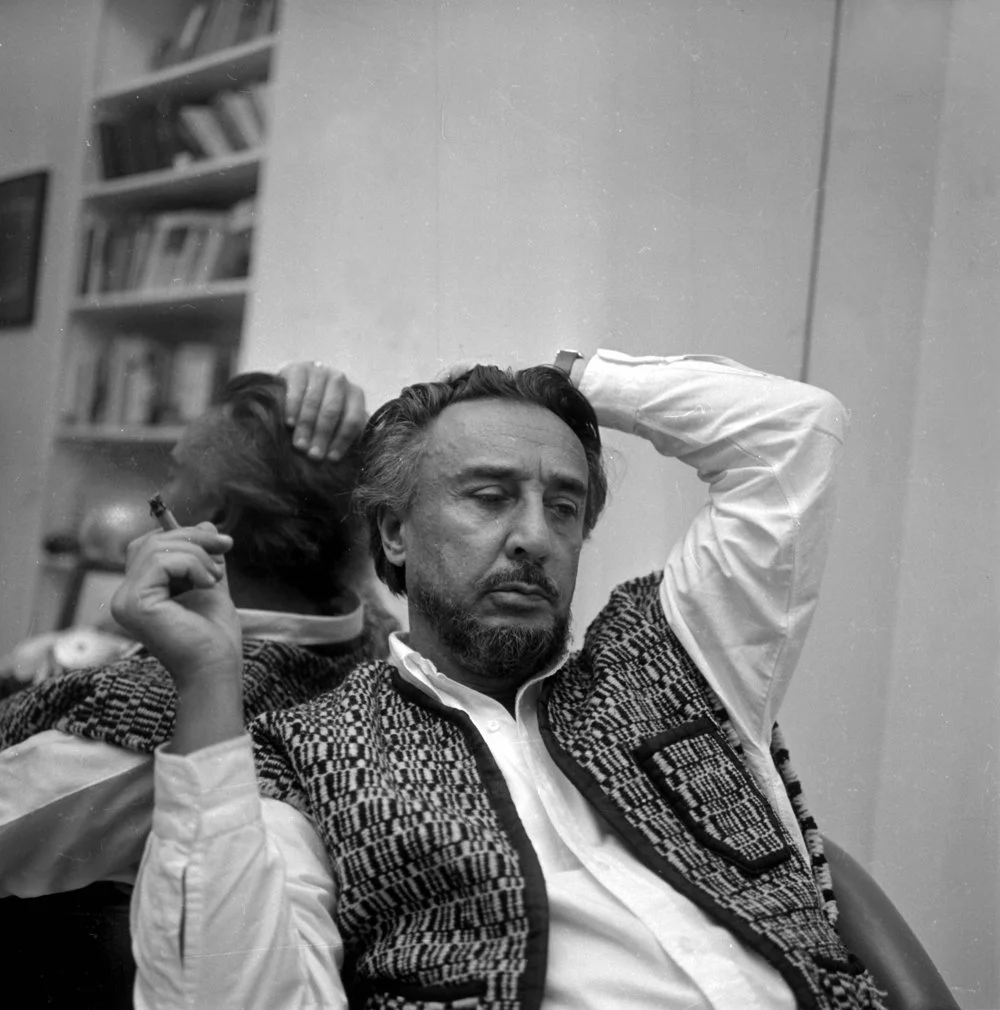
Romain Gary/Getty Images
Only those endowed with unconditional talent can truly experience the joy and challenge of starting ‘all over again’. ‘I had a lot of fun,’ Gary once said about his writing.
However, his enjoyment was not confined to his books. Gary romanced the most beautiful and famous women of his era, and they were more than willing to reciprocate his affections. Handsome, impeccably elegant, a hero, a pilot, and a writer, Gary embodied the living dream of the quintessential knight in both spirit and body.
From 1944 to 1962, Romain was married to Lesley Blanch, a well-known author of erotic novels and an editor for the British edition of Vogue magazine. Lesley was deeply fascinated with everything Russian, and she found Gary’s Russian accent incredibly exciting. According to some biographers, this fascination prompted Romain to decisively break away from his Jewish roots by inventing a fictitious father—either a Tatar prince or a Russian actor. And things became even more complicated after that. The autobiographical note Romain sent to the publishers of the English version of his novel The Forest of Anger began: ‘Romain Gary, born 8 May 1914, near Kursk (Russia). Parents—French.’
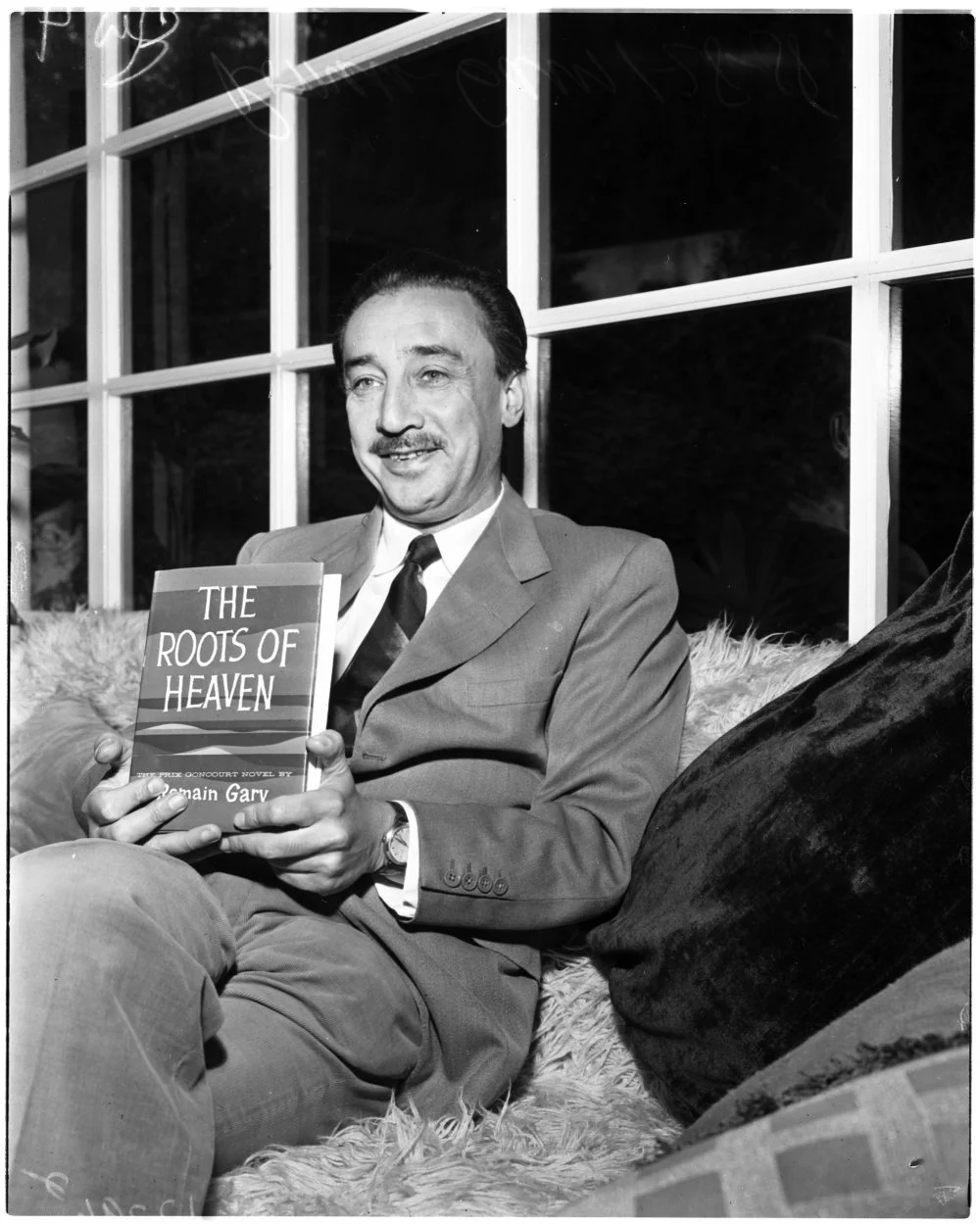
French consul general, Romain Gary (French consul general) with his book 'The Roots of Heaven', January 28, 1958/Getty Images
However, even while married to Lesley, Romain allowed himself romantic adventures on the side. He would often say to his lovers, ‘Oh, my wife, she understands everything!’ Lesley's understanding stretched as far as it could—until it began to wane. Dozens, if not hundreds, of women passed through Gary's bed annually. It reached the point where, in Los Angeles, Gary became known as the ‘Sex Attaché’.
The Last Woman
For Romain Gary, retribution for his past came in the form of the twenty-one-year-old American actress Jean Seberg. Despite her age, she was already a famous and sought-after actress. She starred alongside Jean-Paul Belmondo in Jean-Luc Godard's Breathless, which is considered a masterpiece to this day.
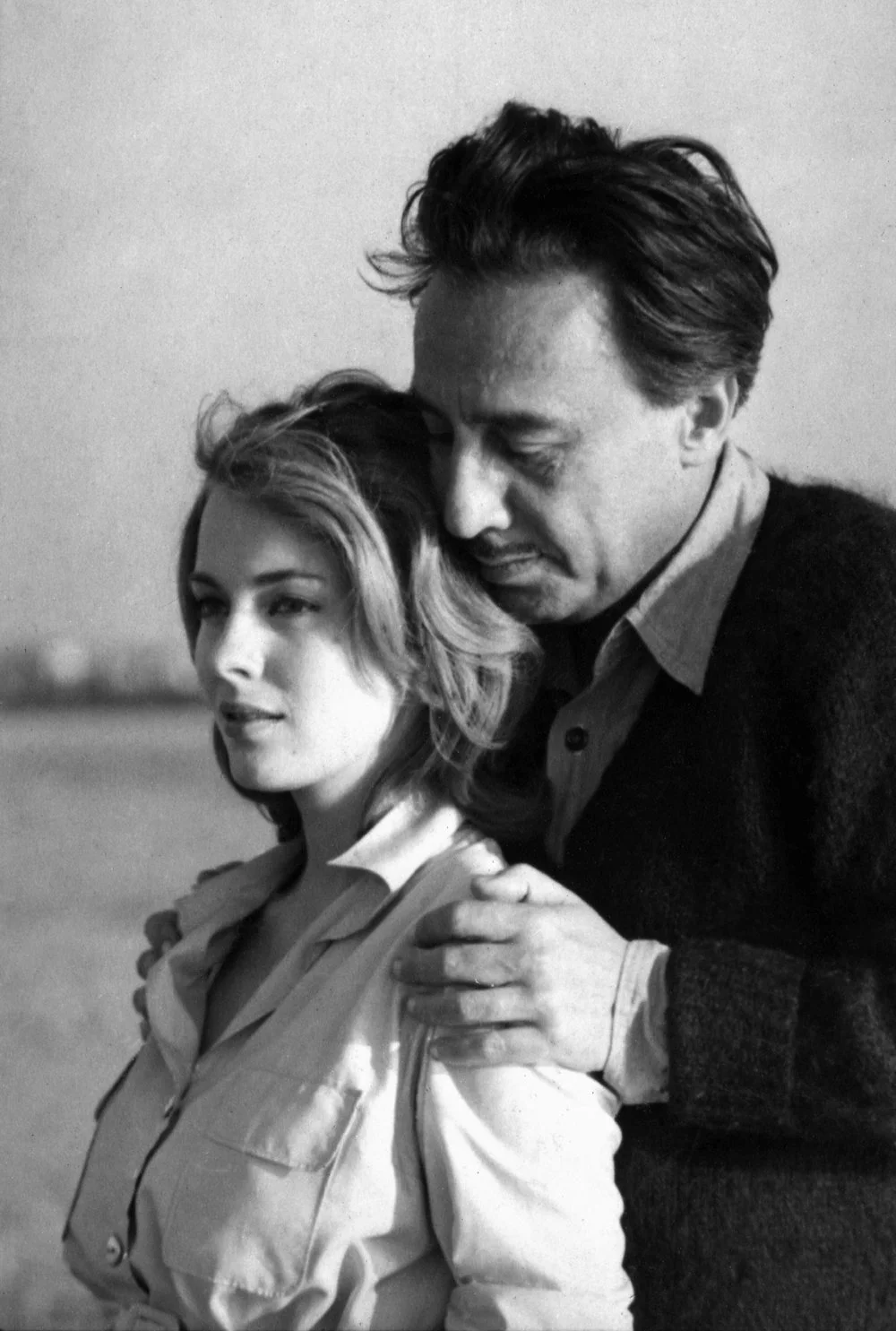
Romain Gary with Jean Seberg/Getty images
Gary fell deeply in love with Jean Seberg despite being twenty-seven years older—a fact that tormented him deeply. Jean married the renowned author and remained true to herself. She pursued her acting career, traveled globally, and stirred up controversies, like joining the Black Panthersi
Jean had affairs with the most inappropriate partners, including leaders of terrorist organizations and drug cartel bosses. Nonetheless, Gary forgave her and defended her using his own reputation. She struggled with drug addiction, and Gary took care of her. She gave birth to Gary’s son, and a few years later, she had a daughter who tragically died only two days after being born. Gary did his best to support his wife, but it was not enough. In 1979, Jean took her own life. A year later, Gary also ended his own life, leaving a note clarifying that his actions were not related to Jean's death.
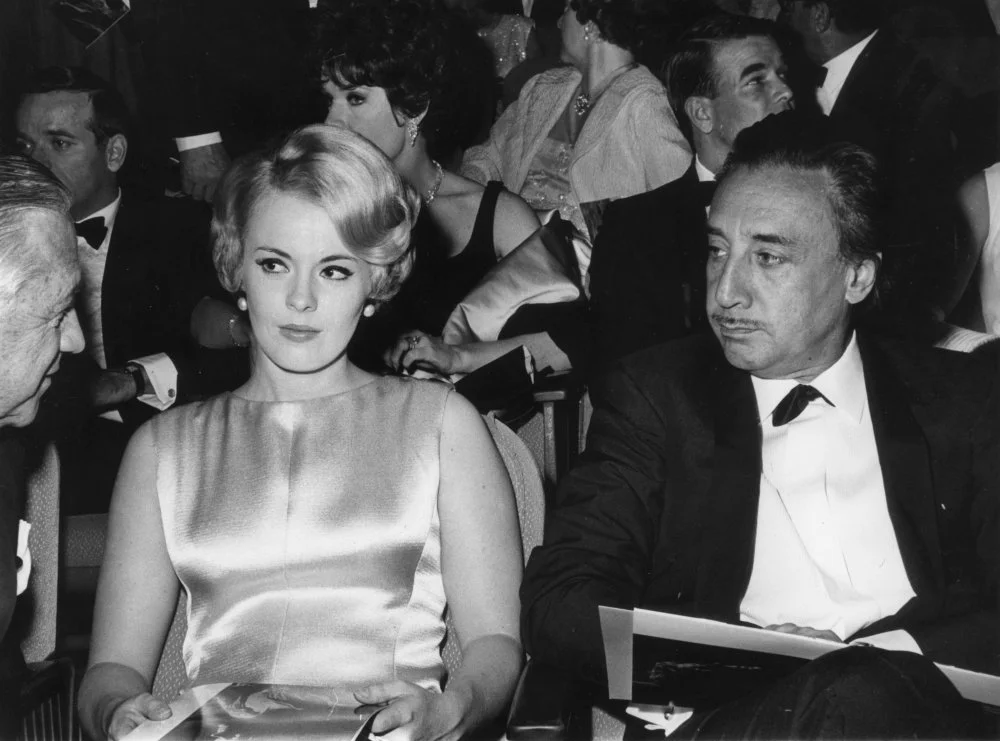
Romain Gary with Jean Seberg/Getty Images
Gary's friends insisted that there be no mourning at his funeral, as the writer himself had chosen to depart this way, unwilling to endure old age, an idea he fundamentally disliked. In the end, Gary always did what he felt was necessary.